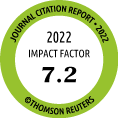|
Objective:
The aim of this
study was to
determine the
incidence of bee
venom allergy in
German beekeepers,
to explore risk
factors for bee
venom allergy in
this group, and to
determine which
factors best
predicted severe
reactions.
Methods: A
questionnaire
incorporating 2
instruments on
beekeepers physical
and mental health
and working practice
was included in 3
German beekeeping
journals. A
reference group also
completed the
questionnaire.
Simple descriptive
methods, bivariate
correlation,
cross-tabulation, 1-way
analysis of variance,
and stepwise
discriminant
analysis were used
to analyze data.
Results:
Altogether, 1053
questionnaires were
returned. No signifi
cant differences
were seen between
the 2 groups. The
mean number of bee
stings annually was
57.8 (median, 30;
range, 0 1000).
Overall, 46 (4.4 %)
beekeepers reported
systemic reactions
to bee stings, 797
(75.6 %) had mild
local reactions, and
196 (18.6 %) had no
reactions. The study
confi rmed several
risk factors. These
were, in descending
order of importance,
symptoms of upper
respiratory allergy
while working on the
hive, presence of
other allergies,
time spent as a
beekeeper, and more
severe nonallergic
reactions to bee
stings in springtime.
These factors
identifi ed
beekeepers at risk
of allergic
reactions to bee
venom in 85.2 % of
cases. Our results
also showed an
association between
allergy and
emotional
instability. Risk
management in
allergic beekeepers
was not good.
Conclusion:
The results of this
study will help to
identify beekeepers
at risk of systemic
reactions to bee
stings and to inform
them about the
dangers of bee venom
allergy.
Key words:
Bee venom. Allergy.
Beekeeper.
Beekeeping. |



